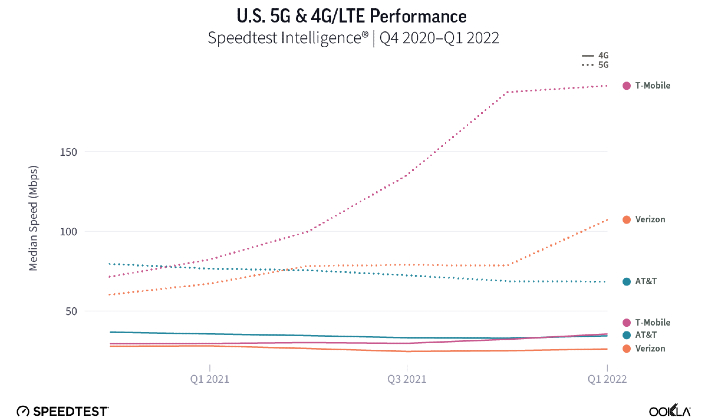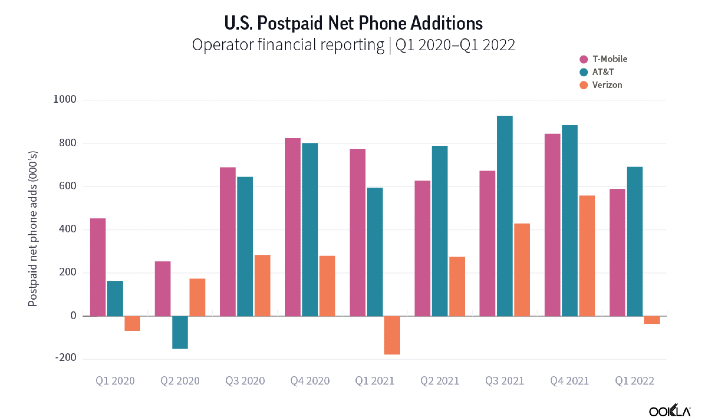T-Mobile Scores Voice-Over-5G First And The Uncarrier Also Leads With Speed

The Un-carrier continues to maintain a sizeable lead when it comes to 5G performance over AT&T and Verizon. In a recent Ookla report, T-Mobile customers enjoyed a median speed of over 150Mbps, while Verizon and AT&T continued to lag behind in average performance. With the addition of Voice over 5G, or Voice Over New Radio/VoNR, T-Mobile seems to be delivering on its commitment to advance the performance and capabilities of its 5G network.

By adding VoNR, the company allows customers to carry voice calls on its 5G network, making for seamless connectivity to 5G, according to a blog post on T-Mobile's website. Customers who are part of the limited launch should notice slightly faster connections while making phone calls, with shorter delays between dialing and actually connecting to the network. VoNR also brings the carrier one step closer to achieving a true standalone 5G network.

T-Mobile seems to be positioning itself well with the addition of VoNR. "VoNR represents the next step in the 5G maturity journey, an application that exists and operates in a complete end-to-end 5G environment," remarked Jason Leigh, research manager, 5G & Mobility at IDC. "Migrating to VoNR will be a key factor in developing new immersive app experiences that need to tap into the full bandwidth, latency and density benefits offered by a 5G standalone network."
The new VoNR technology will be introduced in limited areas of Portland, Oregon, and Salt Lake City, with more cities to be added throughout the year.
Top Image Credit: T-Mobile

